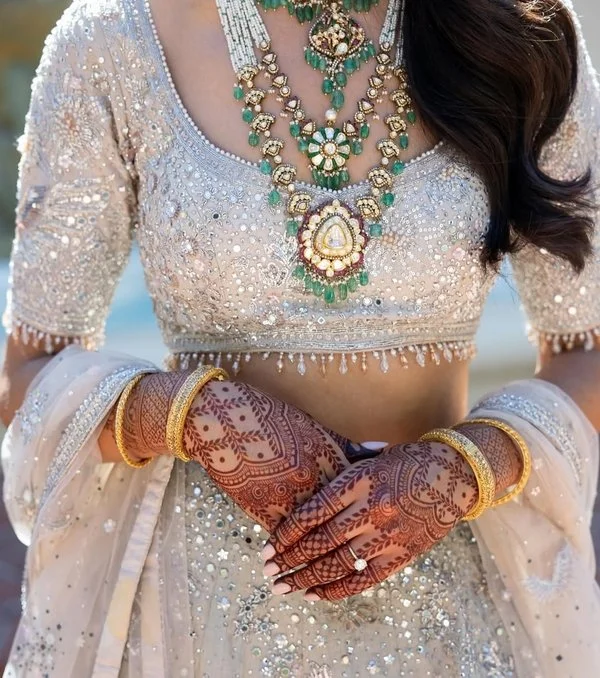Plus the marketing strategies you’ll need.
Photo by Cameron Clark
I’ve been fortunate to have worked with wedding pros from 94 countries over my career and I’ve heard from a ton of them this past month – all with similar questions, stories of lost business, uncertainties of what to say to clients who are completely stressed.
We’re all in this together. If you have questions on Coronavirus and your wedding business, feel free to email me at hello@thinksplendid.com. I’ll be sharing my answers here on the Think Splendid blog so that everyone can benefit. I’ll also keep your name anonymous.
Focus on the Splendid
We're an industry that makes our living by celebrating life's milestones, so I'm going to start each of these update posts with a few positive COVID-19 things we can all smile about:
TOTAL GLOBAL RECOVERIES
The number of global recoveries is now more than 114,000 people, up from 107,500 yesterday.
HUMOR AS A COPING MECHANISM
This question is from an event and floral designer:
I run an event design and floral design company. I’ve dabbled in selling information via a “how to design your wedding” handbook to couples, although with all of my events cancelled or postponed, I’m toying with the idea of expanding and pivoting into the information selling arena.
Do you think couples are interested in purchasing guides on things related to DIY-ing their wedding flowers? Is this a market worth pursuing? Have you seen any wedding pros sell their knowledge and be successful at it?
Answer from Liene:
We just took a hard right turn into an economic crisis (which has been forecasted for a while, but the pandemic forced a steeper, quicker path). Even after the health aspect of this crisis is over, it will take time for people to recover financially.
As for a floral and event designer’s typical sources of income, there will be several parallels to the years immediately following 2008:
Weddings are recession proof. People will still get married when the gathering size bans are lifted.
Even though weddings are recession proof in the sense they will still happen, they are not immune to social scrutiny. People will not want to be accused of “fiddling while the world burns” or having a Marie Antoinette “let them eat cake” attitude because of their over-the-top “showy” wedding. Like in 2009 and 2010, those with luxury budgets may still spend the same amount, but many of them will not want it to look like they spent a lot of money.
Because of this, we’re going to see a return to understated design for a while. We’re also going to see a higher demand for contractual privacy clauses and NDAs that limit or prohibit wedding pros from using photos from the event on their social media and wedding marketing.Destination weddings are going to take a little longer to come back to the level of budget size they have been at in the last few years.
Even if the couple are avid travelers, it is going to take a while for people on their guest list who are not to feel comfortable traveling again. It’s human nature to allow irrational emotions and trauma to make decisions for us.
We will see a return to the marketing of destination weddings as a way to save money by cutting the guest list.Corporate events are likely going to be the hardest hit, particularly the events held by American companies, regardless of global event location. Wedding pros who diversify their income with corporate events are going to see this part of their business drop for a while.
I say this because of the pressure large companies are putting on government officials for a bailout and what we know from bailouts in the past.
The bailout laws in 2008 restricted and penalized recipient companies spending on events. The idea behind this stipulation was that if your giant company was in such dire straits that you needed a bailout from the government then you shouldn’t be spending those taxpayer funded dollars on parties.
While this makes sense to a certain degree from a governmental fiscal responsibility perspective, it was not great for the event industry, to say the least. Corporate holiday parties, sales incentive events, and conferences dried up overnight. A ton of event companies who depended on corporate event income pivoted to the wedding space, increasing competition and adding to the industry’s saturation.
Given what we know about some of the economic policy wonks in the Senate whose seats are not up for re-election in November, there’s a chance the longer-term bailout measures this time around will have similar spending stipulations. It’s best to be prepared for that, just in case.
CREATING PASSIVE INCOME STREAMS
Now that you have some idea of what to prepare for as far as your live event income streams are concerned, let’s talk about adding income streams like informational products that fall under the concept of “passive income.”
Fortunately for your plans, DIY wedding resources will be in demand over the next few years.
Because of the economic effects of the pandemic, we are going to see an increase in people deciding to DIY in an attempt to save money on their weddings.
Because of the emotional effects of the pandemic, we are going to see an increase in people deciding to DIY in an attempt to "focus on what matters" with the idea that things made by their own hands have more value.
You can definitely succeed in selling “How To” or DIY information to engaged couples, but it is not as easy or as “hands off” as many people assume.
Any information you sell to engaged couples has to be SO MUCH BETTER than anything they can find for free online in order for them to decide it’s worth forking over cash for.
Millennials and Gen Zers are expert researchers. If they can find it free online, they’re not paying you, especially those who are taking a DIY approach to their wedding or have recession-limited wedding budgets.
Do not assume that just because larger magazines have introduced paywalls to online wedding content that they're actually making any money from it (most are not).
FOCUSING YOUR BRAND MARKETING
Since the brides and grooms you’ll be targeting with your online DIY wedding resources may not have the budget levels of couples you’ve targeted in the past, you may need to adjust your marketing.
You'll need to work on building a brand name among the general public and not just in the wedding industry. This will be key in conveying you are the expert they should buy from.
In order for you to scale this and sell a high volume at a lower price point, you are going to want to target the mass market rather than the premium or luxury markets.
Mass market can include aspirations of luxury but it is not luxury. It is not scarce, it is available to the masses. The word you want to focus on as you create your resources and your marketing strategies is accessible.
You want not just your product’s price point, but the materials in your content to be accessible to people.
This is where wedding and lifestyle pros often go wrong in trying to create information products for the masses.
Wedding photographers will create a video series on "how to get professional quality photos of your kids with an iPhone" but then film themselves shooting with their multi-thousand dollar DSLR camera.
Chefs and caterers will create a cookbook with hard to source or crazy expensive ingredients.
Their end results are still beautiful but they are not accessible to the everyday person.
Normal, everyday people do not have connections to a floral farmer upstate nor to a wholesaler in Holland, Kenya, or even locally. They are likely not going to go through the rigamarole of filing the official business paperwork they need to have before they can access "to the trade" resources.
Anything you create for a DIY guide needs to include materials that are widely available to the public.
It’s important to remember that being accessible doesn't mean your style needs to be bland or watered down nor does it need to appeal to absolutely everyone. Having a point of view from a design perspective will matter even more than ever in order to stand out. Work on becoming the "name" known for whatever your particular style is.
YOUR NEW COMPETITION
You will now be competing not just with other professional floral designers sharing advice online and with wedding blogs and magazines publishing informational content, but with legitimate celebrities who have leveraged their own name to launch lifestyle- or event-related companies.
Don’t be so quick to roll your eyes – a lot of them are good at it.
As an example: while Tiffani Amber Thiessen of Saved By The Bell fame still works as an actor, she has also ventured into event planning and other "lifestyle expert" endeavors including cookbook writing.
A lot of celebrities are artists and event design is a creative outlet they can monetize. It’s actually less of a leap than the one many event pros made from their former careers as attorneys/accountants/social workers/etc.
THINKING BIGGER
I also want to encourage you to think bigger and longer term than you maybe currently are. What big dreams do you have that go beyond your DIY informational products?
While you certainly don’t have to dream bigger if you’ve reached a place you’re truly content to stay (“big enough” is a valid goal), please do not limit yourself out of a fear that big things are only for those with already big names.
Creating a brand that appeals to the mass market can open doors to other opportunities: product lines, licensing deals, book deals, TV shows, etc.
If these opportunities appeal to you, I encourage you to borrow Mindy Kaling’s mantra, “Why NOT me?” and create a marketing and brand positioning strategy that allows you to pursue them.
Chicago-based luxury event designer and planner Debi Lilly’s line of on-trend flower accessories in Safeway, Albertsons, and Vons is a good example of a wedding professional leveraging a brand name to expand into mass market opportunities.
DOING NUMBERS
For the most part, to succeed in this arena these days, you need social media numbers.
Numbers aren't everything, and if you're focused on luxury you don't need to focus as much on having a ton of followers, just the right ones.
In luxury you are scarce. Everyone can't have you. Everyone can't have what you offer. Your work and art is available only to those who can afford it and even then only if you also like them enough to take them on as a client.
The keyword in mass market is "mass" and to get things like a licensing deal so you can have your products on the shelves at big box stores like Target or Home Depot (which would be a great retail partner for an extension of your DIY offerings: think licensed branding of floral shears, wire snips, containers, adhesives, floral tape, etc), you need to show you already connect with the masses. Social media is where you will prove that.
When you're planning your strategy to land a product/licensing/book/TV/etc deal, the "magic number" you'll want to keep in mind is 10 (this number used to be 5, but as the landscape got more competitive, the number went up).
The decision makers and “gatekeepers” taking a chance on you want to know you are coming to them with a built-in marketing platform. As a rule of thumb, they will want you to have at least:
10 TV appearances (Morning show lifestyle segments, etc)
100 press features/quotes
10,000 downloads/sales of your informational products
10,000 newsletter subscribers
10,000 audience members annually who attend the conference or workshop sessions you speak at (10,000 is total for the year, not for each speaking engagement.)
10,000 real and engaged followers on Twitter (Twitter numbers are especially important for TV ever since Shonda Rhimes made her casts and crews live tweet the shows on Thursday nights and the rest of the industry followed suit.)
10,000 podcast subscribers
10,000 YouTube subscribers and 100,000 views
100,000 real followers on Instagram and active engagement
1,000,000 real and actively engaged followers on TikTok
You don’t need to do all of these things, but of the things you do, these are the numbers to shoot for.
The rule of 10 isn't set in stone and there are exceptions to it, but it is better to approach the work with the mindset of "I am exceptional, but I am NOT the exception." If you do end up being the exception to the rule it should be a welcomed surprise, not something you felt entitled to.
Remember that social media is the house you rent, and your website/newsletter/podcast/blog is the house you own. Typically you want to focus more on building equity in the house you own, but still make the house you rent appealing and work for you.
In the case of mass market, you want to both double down on investing in the house you own and make the house you rent really, really appealing.
Selling informational products is definitely something you can pursue and I do think we are headed into a time where the market is more primed for it, but it definitely should not be viewed as a "quick way to make extra cash." It will require a healthy work ethic and elbow grease, which I know you have in spades.
Questions from Wedding Pros
Have a question on a sticky client issue, running a wedding company, or an aspect of business you feel you should know by now yet don’t?
Liene is happy to weigh in with her trademark compassionate yet no-nonsense advice.
To submit a question to our Wedding Pro Q+A column, send us an email. We’ll keep you anonymous.
Written by
LIENE STEVENS
Liene Stevens, the founder and CEO of Think Splendid, is an author, speaker, and award-winning business strategist. Armed with $2000, a healthy work ethic, and an undeserved dose of privilege, Liene bootstrapped Think Splendid from a scribble in a notebook to a successful wedding business consulting firm with a client list spanning 94 countries.























